Fuxi: The Architect of Bagua - Decoding the Genesis of Ancient Chinese Cosmology
Dive into the world of Fuxi, the first mythical emperor of China, and discover his transformative role in shaping ancient Chinese cosmology. This exploration sheds light on Fuxi's invention of Bagua and its inspiration on cosmological and philosophical thought.

Fuxi is a prominent figure in Chinese mythology. Historically, he is credited with numerous pivotal contributions to ancient Chinese civilization, including the creation of humanity alongside his sister and wife, Nüwa. Fuxi is regarded as the inventor of music, hunting, fishing, cooking and writing. However, perhaps his most profound contribution is his invention of Bagua - a cosmological system deeply ingrained in Chinese philosophy and spirituality.
Fuxi: The First Mythical Emperor of China
Fuxi is not only recognized as the first mythical emperor of China but also revered for his divine and peculiar characteristics. He is often depicted as a serpentine deity, a divine being with a serpent's body, a striking representation that signifies his miraculous birth. This combination of human-like characteristics with his serpentine form marks Fuxi as a unique and captivating character in Chinese mythology.
However, Fuxi's role extends beyond being a mere character in mythical narratives. He is known to have occupied various influential positions, embodying a Taoist god and serving as a member of the Three Sovereigns at the beginning of the Chinese dynastic period.
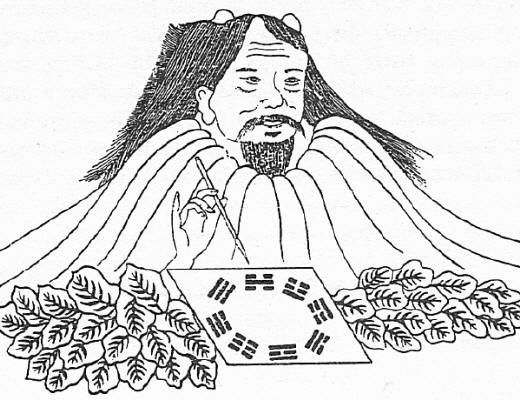
The image of Fuxi is imbued with deep symbolic meaning. Depictions often portray him with a "leaf-wreathed head growing out of a mountain" or as "a man clothed with animal skins." These artistic interpretations reflect the fusion of natural elements with the human figure, emphasizing Fuxi's profound connection with nature and his role as a divine ruler.
In addition to his unique form and roles, Fuxi is also known by several other names such as Bao Xi and Mi Xi. Each name carries a specific connotation, revealing a different facet of this multi-dimensional deity. His myriad roles and names emphasize his significance in Chinese mythology and his enduring influence on Chinese culture and society.
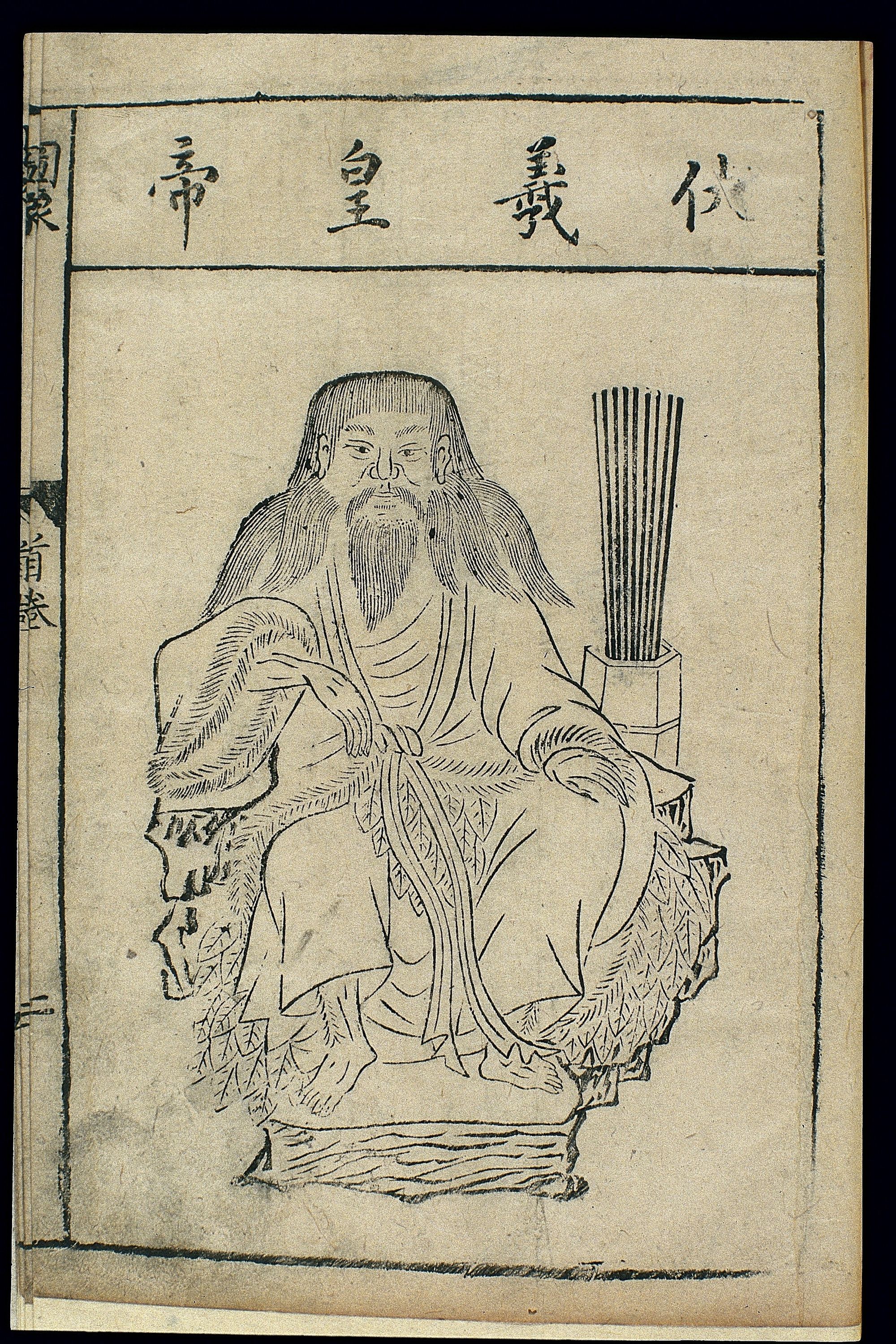
Origin: A Creation God or a Creator?
The mythology surrounding Fuxi's birth is intriguing. One account suggests that the giant Pangu, the creation god in Chinese mythology, upon waking from his slumber within an egg of chaos, stood up and separated the sky and the earth. Following his death, Pangu's body transformed into rivers, mountains, plants, animals, and other elements of the world.
Within this newly formed world, an ancient civilization known as Huaxu arose. Legend has it that this civilization is the distant ancestor of the Chinese nation. It is said that a woman from Huaxu stepped on the footprints of giants, which led to a mystical pregnancy. This pregnancy culminated in the birth of the twin siblings Fuxi and Nüwa, who were said to possess human faces and snake bodies.
However, some myths hold Fuxi as the creator, not Pangu, and that he worked alone and not with Nüwa. Fuxi was referred to as the "original god" and was believed to be born in the lower-middle reaches of the Yellow River in a place called Chengji.
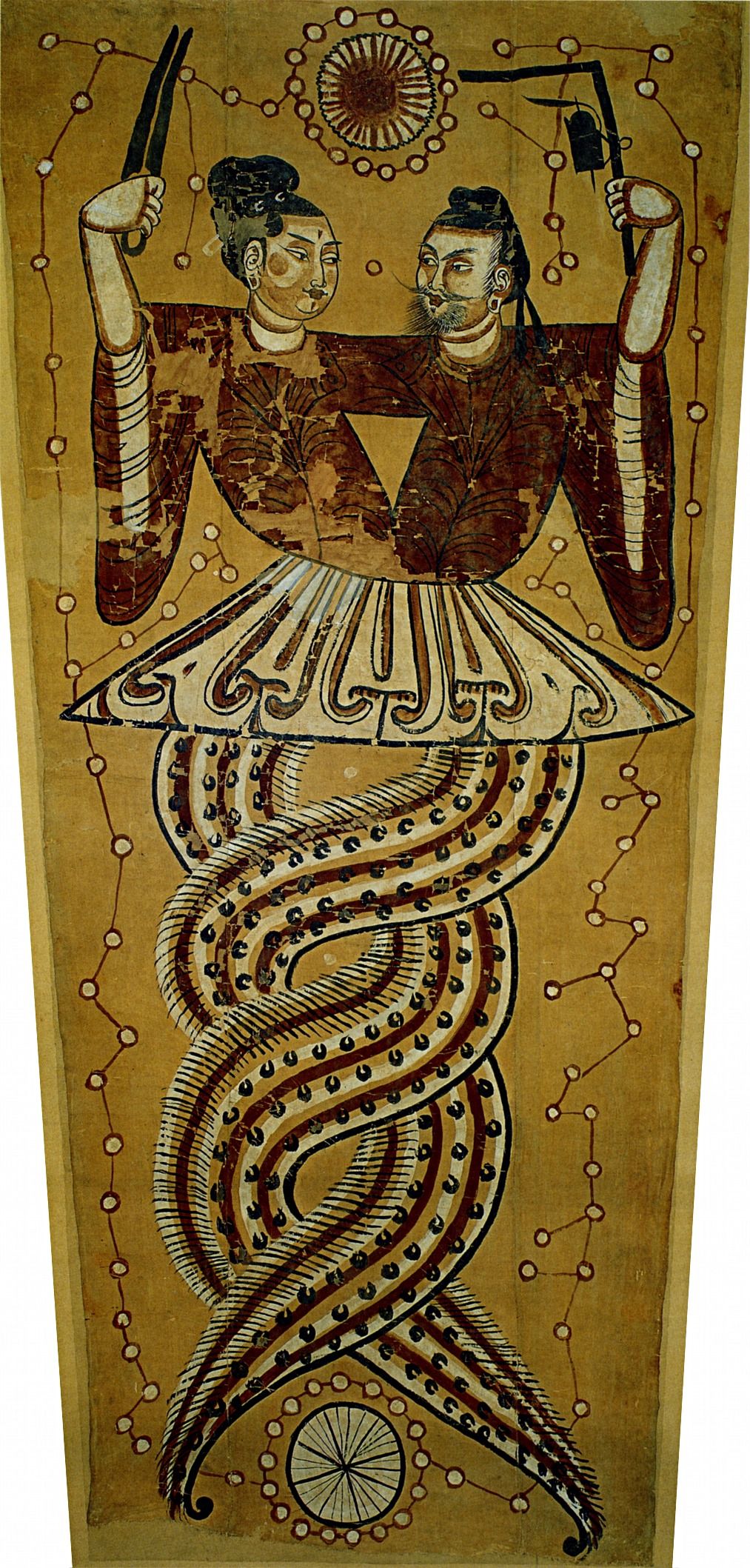
Creation Legend and Social Importance
As per the Classic of Mountains and Seas, Fuxi and Nüwa, the original humans, lived on the mythical Kunlun Mountain. They created offspring from clay and made the clay figures come alive with their divine powers. These clay figures were considered the earliest human beings. The creation of human beings was a symbolic story of having a larger family structure that included the figure of a father.
Fuxi, along with his predecessor Nüwa, shaped the social structures of their time. The Fuxi Temple in Gansu Province's inscription underscores his significance: "Among the three primogenitors of Huaxia civilization, Fu Xi in Huaiyang Country ranks first."
Fuxi is credited with teaching his subjects essential survival skills such as cooking, hunting, and fishing, and establishing the basic family structure and the institution of marriage.
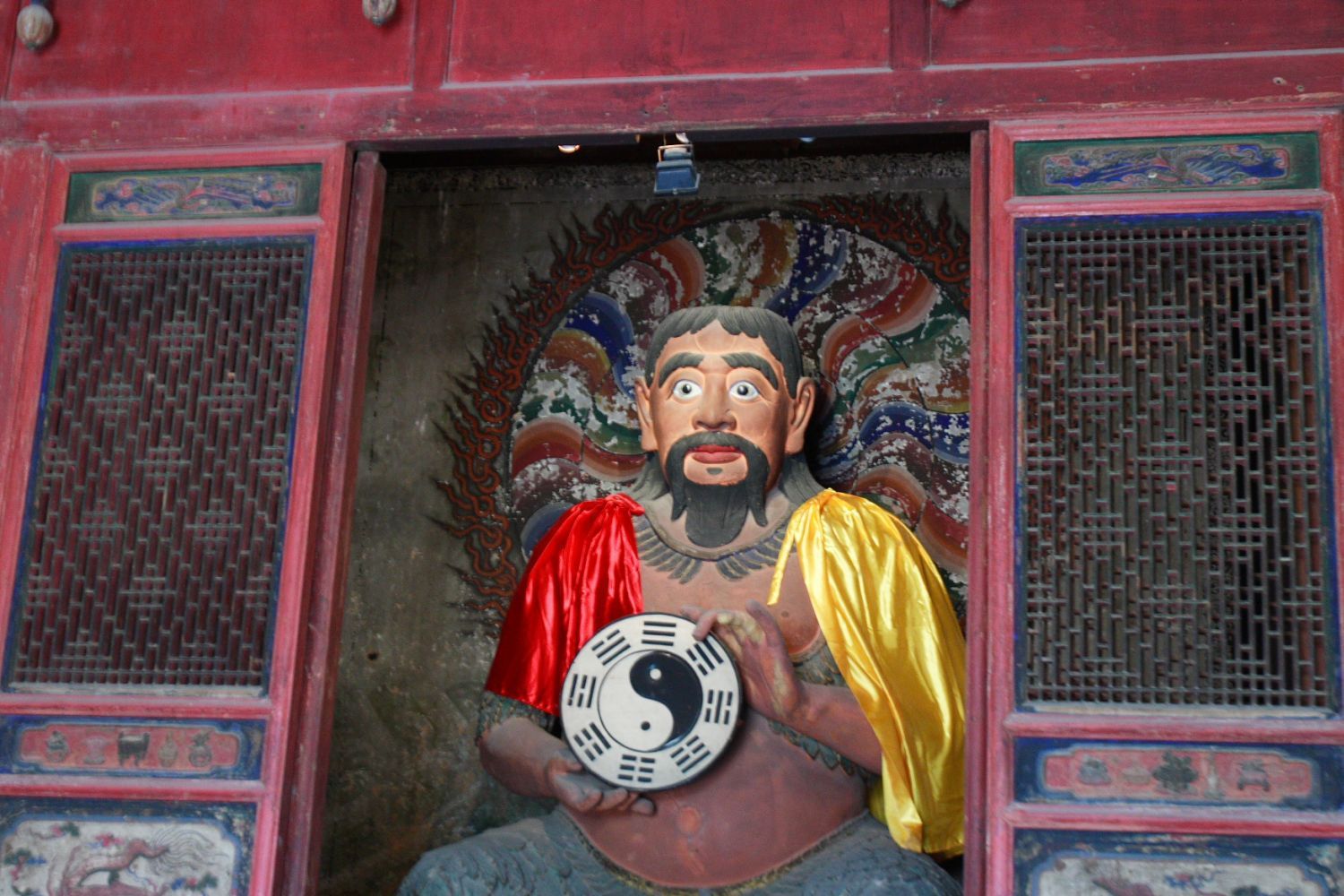
Fuxi and the Origin of the I Ching and Bagua
Traditionally, Fuxi is considered the originator of the I Ching (also known as the Book of Changes) and Bagua. This belief stems from the legend of Fuxi discovering the arrangement of the trigrams of the I Ching in the markings on the back of a mythical dragon horse that emerged from the Luo River. This discovery led to the inception of calligraphy, and by extension, the Bagua system - the cornerstone of Taoist cosmology and metaphysics.
Fuxi's life and contributions are a testament to a profound and intriguing blend of mythology, philosophy, and history. His legacy as the inventor of Bagua continues to inspire and influence contemporary interpretations and practices in Chinese philosophy and spirituality. As we further explore and unravel the wisdom of ancient Chinese philosophy through our study of the "Yi-Tao Bagua" universe model and the "Arrow-One" universal law, Fuxi's influence remains a vital guiding force.
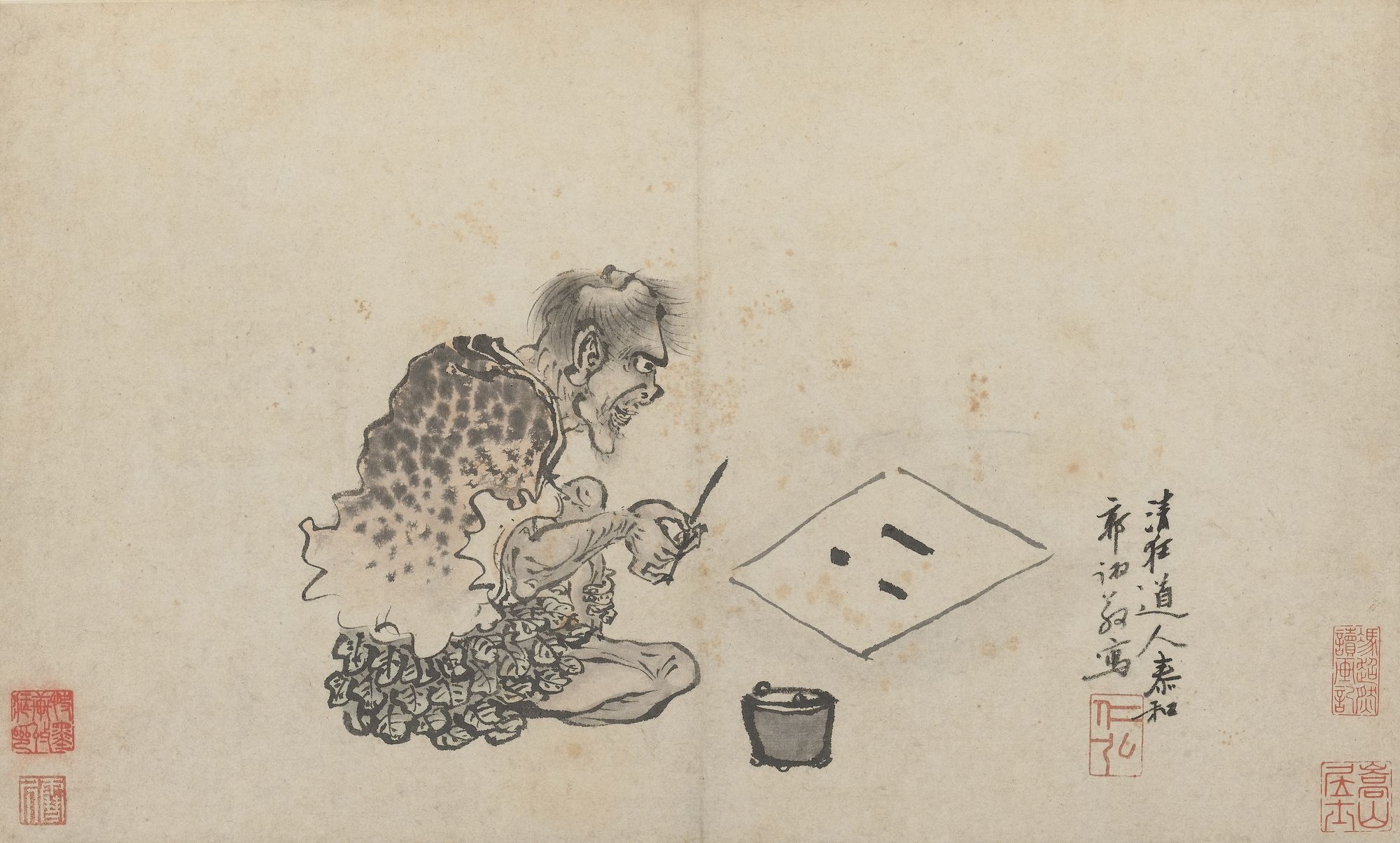
Join Us in Unraveling the Mysteries of the Universe
We hope you enjoyed journeying through the life and significance of Fuxi. As we continue to explore the confluence of ancient Chinese philosophy and contemporary science, there will be much more to learn and discover.
To stay updated with our latest blog posts, be sure to subscribe to our newsletter and follow us on our social media platforms. If you have any questions or would like to contribute to our community's understanding of the universe, we invite you to leave a comment below or contact us directly.
Let us continue our cosmic journey together, deepening our understanding and uncovering the mysteries of the universe as we go. Here's to a journey filled with curiosity, knowledge, and spiritual growth!
